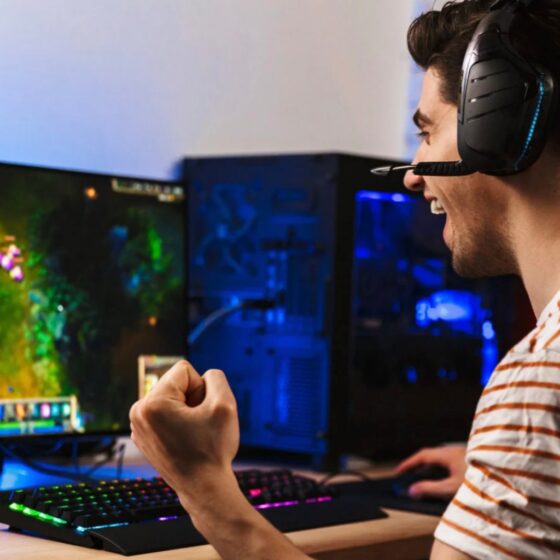Skill games have emerged as a captivating force in the digital entertainment landscape, drawing players into a world where mastery and competition intertwine. These games challenge individuals to hone their abilities, fostering resilience and self-efficacy while providing an engaging platform for online learning. As the popularity of skill gaming continues to grow, it has a significant impact on various aspects of personal development and academic performance.
The rise of skill games marks a shift in the gaming industry, emphasising knowledge transfer and the application of game mechanics to enhance learning motivation. Players find themselves immersed in virtual environments that encourage indirect competition and the mastery of skills. This article explores the cognitive benefits of skill games, compares them to games of chance, and examines the monetisation models that drive this innovative sector. By delving into these aspects, we aim to shed light on how skill games are shaping the future of interactive entertainment and education.
The Rise of Skill-Based Gaming
The rise of skill games marks a significant shift in the gaming industry, with an emphasis on knowledge transfer and the application of game mechanics to enhance learning motivation. This trend is fueled by several factors, including the mobile gaming revolution, the growth of esports, and the emergence of gamification trends.
The mobile gaming revolution has transformed the landscape of online gaming, making it more accessible and convenient than ever before. With the introduction of smartphones and advanced mobile technologies, players can now enjoy sophisticated and visually stunning games from virtually anywhere. This accessibility has democratised the gaming experience, attracting a diverse range of players and driving significant industry growth. In 2022 alone, the mobile gaming industry expanded by an estimated 10%, with projections indicating a compound annual growth rate (CAGR) of 13.8% over the next five years.
Alongside the mobile gaming boom, the esports industry has witnessed meteoric growth in recent years. Esports competitions have attracted tens of millions of live viewers, with participants undergoing rigorous daily training. The financial side of esports can be complex, with prize pools reaching staggering figures. The International 2021, a major Dota 2 tournament, boasted a prize pool exceeding $40 million. The rise of esports has not only captivated audiences but has also opened up new professional opportunities beyond competitive gaming itself.
Gamification trends have also played a crucial role in the rise of skill-based gaming. By integrating game mechanics and principles into non-game contexts, gamification drives participation, engagement, and motivation. The global gamification market is projected to reach $30.7 billion by 2025, with North America and Europe leading the charge. Gamification has found applications in various sectors, such as retail and education, where it enhances learning effectiveness and employee productivity. Looking ahead, key gamification trends to watch include the integration of artificial intelligence for personalised learning pathways and the transformative potential of augmented reality in immersive learning experiences.
As the skill gaming industry continues to evolve, it is essential for organisations and individuals to stay abreast of these trends and incorporate them into their strategies. By leveraging the power of mobile gaming, esports, and gamification, the gaming industry is poised for continued growth and innovation, shaping the future of interactive entertainment and education.
Cognitive Benefits of Skill Games
Skill games have a significant impact on various cognitive abilities, including problem-solving skills, pattern recognition, and decision making. These games challenge individuals to develop resilience and self-efficacy while providing an engaging platform for online learning.
Solving problems in an immersive game environment provides players with repeated practise in applying rules and using tools to find creative solutions. As players reflect on their choices, they learn how to use the tools efficiently by analysing givens and constraints to achieve optimal performance and develop effective solutions to general problems.
Problem-Solving Skills
Video games are not just mindless activities; they require players to engage with complex challenges and solve problems within the game world. This stimulates various cognitive processes, such as critical thinking, logical reasoning, and creative problem-solving.
Many video games incorporate intricate puzzles and quests that present players with multiple solutions, allowing them to experiment and learn from their mistakes. Navigating through these virtual worlds teaches players to approach problems from different angles and develop innovative solutions.
Pattern Recognition
Video games can enhance pattern recognition skills by requiring players to identify and respond to patterns within the game environment. This ability is crucial for success in many skill games, as players must quickly recognise and adapt to changing patterns to progress.
Brain-training games like CogniFit claim to measure, train, and monitor cognitive skills, including pattern recognition, attention, memory, and visual perception. These games provide players with repeated problem-solving scenarios that require them to apply rules and recognise patterns to succeed.
Decision Making
Fast-paced decision making is another significant aspect of video games that fosters problem-solving skills. Many games, especially action-packed ones, require players to make split-second decisions under intense pressure. This trains players to process information rapidly, assess risks, and develop effective strategies on the fly.
Strategy games, in particular, provide an excellent platform for players to hone their decision-making skills. Games like “Civilisation” require players to make decisions about resource allocation, diplomacy, warfare, and technological advancements, with each decision having both immediate and long-term consequences.
Skill games offer a unique opportunity for individuals to develop and enhance their cognitive abilities in an engaging and interactive environment. By challenging players to solve problems, recognise patterns, and make quick decisions, these games can significantly improve problem-solving skills that are transferable to real-life situations.

Skill Games vs. Games of Chance
In the world of gaming, there are two main categories: games of skill and games of chance. While both offer entertainment and excitement, they operate on fundamentally different principles. The primary difference between games of skill and games of chance lies in the degree of control that players have over the outcome. While skill-based games like Indian rummy involve strategic thinking and player agency, chance-based games rely solely on luck.
Legal Distinctions
Whether a game is a game of skill or a game of chance may determine whether or not the game is legal in many states. There are many states that allow individuals to participate in games of skill but forbid them from participating or entering in games of chance. The legal guidelines and requirements for gambling and casinos are covered by gaming and gambling regulations.
In the majority of states, gambling is regulated by both federal and state laws. Although the laws in each state may vary, the federal laws will apply in every state. Federal laws attempt to cover the gaps in gambling laws that are not covered by state laws. Depending on an individual’s activities, the penalties for violating a federal gambling law may be severe, including heavy fines, forfeiture of winnings, jail time, or conviction of a felony.
Player Agency
Games of skill are those where the outcome is primarily determined by the player’s knowledge, abilities, and strategy rather than luck. In these games, players can improve their performance over time through practise and experience. Success in games of skill often requires strategic thinking and decision-making, and players can enhance their skills through practice and dedication.
On the other hand, games of chance are those where the outcome is predominantly determined by random events or luck. In these games, players have little to no control over the result, and winning is often a matter of probability. The outcome is determined by unpredictable factors such as dice rolls or card shuffling, and success depends largely on luck rather than skill or strategy.
Skill Ceilings
The idea of a skill ceiling is entirely academic outside of competitive play, which these days generally happens online. Casual players will not find the skill ceiling, ever, for most or any of the games they play, perhaps aside from games explicitly for children and intended to teach them basic mathematical or logical principles.
Systems that incentivize winning send the signal that this is how to relate to gaming and that improving your skill is a primary reason to game. ELO and win-tracking is a necessity for competitive play, to match against similarly skilled opponents. But opt-in to such systems should be optional for those wishing to experience casual play only, which is arguably the default approach many hobby games were designed to accommodate.
Choosing between games of skill and games of chance depends on your preferences and personality. If you enjoy mental challenges and the opportunity to improve your abilities, games of skill may be more appealing. On the other hand, if you seek excitement and the thrill of unpredictability, games of chance might be the better choice.
Monetisation Models in Skill Gaming
Skill gaming platforms employ various monetisation strategies to generate revenue while providing engaging experiences for players. The freemium model has emerged as a powerful force in the mobile games industry, offering a basic game free of charge while charging for premium features or enhanced functionality. This approach minimises the perceived risk for players and establishes trust, allowing them to validate the gameplay, mechanics, and overall user experience before deciding to invest further.
The freemium model leverages psychological principles such as the “try before you buy” concept and the principle of reciprocity. If players find value in the free gameplay, they may feel compelled to reciprocate by purchasing in-game features, upgrades, or premium versions. Additionally, the “endowment effect” comes into play, where players assign more value to the game simply because they’ve spent time playing it, making them more likely to spend on premium features.
Tournament fees serve as the first step in creating a prize pool for skill gaming competitions. Players initiate the money turnover by betting on their talents, knowing their capabilities and history in a game, and monetizing their skills. The platform collects these fees, and the winning player receives the prize pool. The bets in skill gaming are typically low, starting from a few cents, and the platform generates revenue through a service fee (rake) collected from the prize pool.
In-game purchases, such as cosmetic items and power-ups, also contribute to the monetisation of skill games. Downloadable content (DLC) is a primary revenue generator for game developers, while in-game advertisements and promotions benefit publishers. The use of cryptocurrency for in-game transactions is also gaining traction, adding an unpredictable element to monetisation efforts in the esports industry.
Advertising and sponsorships by brands account for a significant portion of esports revenues, approximately 60%. Other major contributors include media rights for live streaming, live event ticket sales, and custom merchandise sales. Fan engagement plays a crucial role in unlocking monetisation opportunities, with fans donating directly to prize pools, betting on tournament outcomes, and purchasing items from sponsors through built-in e-commerce components.
Matcherino, a crowdfunding platform for esports tournaments, has introduced innovative monetisation strategies that leverage fan engagement. Features such as donation leaderboards, on-screen overlays, and recognition for fan contributions enhance the fan experience and drive support for tournaments. Additional fan engagement tools, including trivia events, stretch goals, and e-commerce integrations, enable fans to interact with brands and contribute to prize pools.
As the skill gaming industry continues to evolve, technology will be a key driver of monetisation going forward. The transformation of esports tournaments from manual to automated processes and the increasing digitization of the sector are expected to accelerate monetisation, potentially reaching levels comparable to traditional sports. By embracing innovative monetisation models and leveraging fan engagement, skill gaming platforms can create sustainable revenue streams while providing captivating experiences for players and spectators alike.

Conclusion
Skill games have carved out a unique niche in the digital entertainment landscape, offering players a chance to hone their abilities and compete in engaging virtual environments. These games have a significant impact on cognitive development, fostering problem-solving skills, pattern recognition, and quick decision-making. The rise of skill gaming, fueled by mobile technology, esports, and gamification trends, has opened up new avenues for learning and personal growth.
As the skill gaming industry continues to evolve, it faces challenges in balancing monetization strategies with player engagement. The freemium model, tournament fees, and in-game purchases have emerged as key revenue streams, while the legal distinctions between games of skill and chance remain a crucial consideration. Looking ahead, the future of skill gaming lies in its ability to adapt to changing technology and player preferences, all while maintaining its core focus on mastery and competition.










